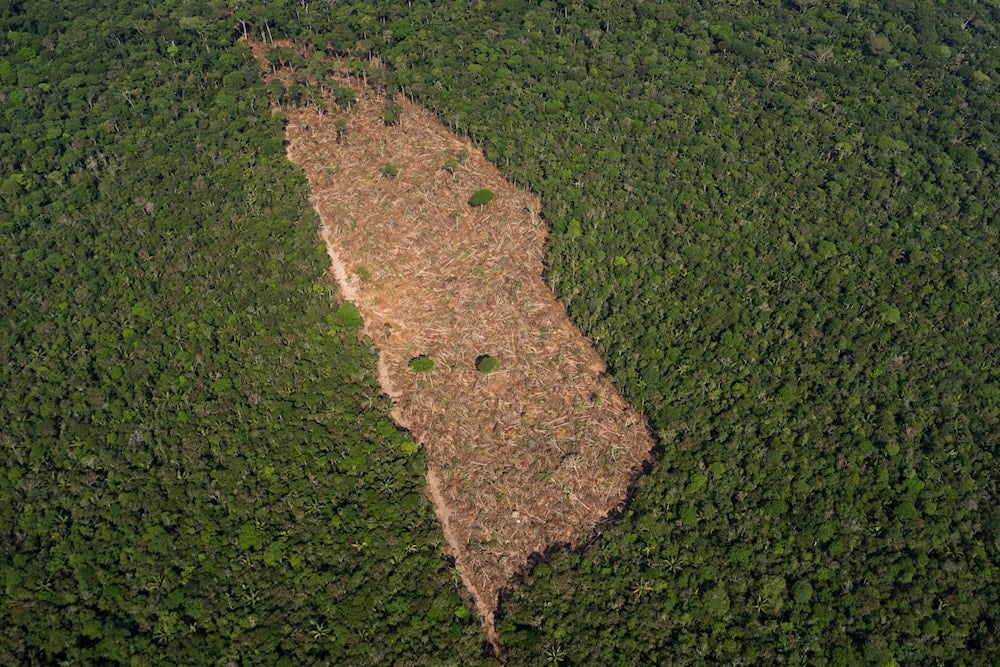Study links deforestation to over half a million deaths in two decades
New research links tropical deforestation to over 500,000 heat-related deaths in 20 years, revealing the deadly human cost of forest loss in the Amazon, Africa, and Asia.
-

A deforested patch of land in the middle of the jungle is seen near Porto Velho, Brazil, Tuesday, Aug. 27, 2019. (AP)
Deforestation has contributed to the deaths of more than 500,000 people in tropical regions over the past two decades due to heat-related illnesses, according to new research.
The study found that clearing land in the Amazon, Congo Basin, and Southeast Asia has intensified local temperatures by reducing shade, lowering rainfall, and heightening fire risks. This warming effect adds to the broader impacts of global climate change.
Researchers estimated that between 2001 and 2020, approximately 345 million people living in tropical regions experienced additional heat stress linked to deforestation. For 2.6 million of them, the rise in temperature was at least 3°C above normal levels.
The heightened exposure proved fatal in many instances, with deforestation-driven warming responsible for an average of 28,330 deaths annually during the study period. More than half of these deaths occurred in Southeast Asia, largely due to its dense populations in vulnerable areas. Roughly one-third took place in tropical Africa, with the remainder recorded in Central and South America.
First study to quantify the death toll
Published Wednesday in Nature Climate Change, the research was conducted by teams in Brazil, Ghana, and the UK. They compared non-accidental mortality rates with temperature changes in areas undergoing tropical land clearance.
While previous studies have linked deforestation to long-term local warming, this is the first to quantify the resulting human death toll.
Professor Dominick Spracklen of the University of Leeds, a co-author of the study, said the findings highlight a direct and deadly consequence of forest destruction. "Deforestation kills", he said, noting that the immediate dangers are often overshadowed by global climate debates and agricultural expansion priorities.
He pointed to Brazil’s Mato Grosso region, where vast tracts of land have been cleared for soya bean plantations. Local farmers are now pushing to end the soy moratorium in the Amazon to enable further deforestation.
Spracklen argued that preserving forest cover not only saves lives but also benefits agriculture.

 2 Min Read
2 Min Read










